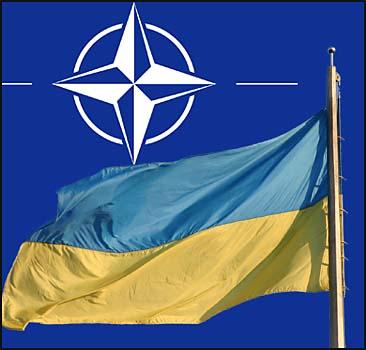Ukraine: US-Installed Fascist Rule in Europe’s Heartland. Will Donetsk Rejoin Russia?

The Obama administration bears full responsibility for replacing democracy in Ukraine with an illegitimate Regime integrated by Nazi parties. .
The nation shares a near-1,500 mile land and sea border with Russia. Stop NATO’s Rick Rozoff earlier explained Ukraine is “the decisive linchpin in plans by the US and its NATO allies to effect a military cordon sanitaire, severing Russia from Europe” – a sinister plot perhaps intended as prelude to nuclear war.
Under Kiev’s rule, Ukraine is a hotbed of militarized extremism, waging war on its own people, committing appalling human rights abuses – with full support and encouragement from Washington and key NATO countries.
Since putschists usurped power in February 2014, around 2.8 million Ukrainians fled Donbass to escape conflict unleashed by Kiev, according to the International Federation of Red Cross and Red Crescent Societies’ Russian office.
Around 1.5 million are internally displaced. Most others left for Russia where they now reside as refugees.

On May 12, Donetsk People’s Republic (DPR) President Alexandr Azkharchenko told the Russia-Donbass Integration Committee
“(w)e have one goal, the reunification with the motherland, and the motherland is Russia – and this is the ultimate goal of this committee.”
“All the work is aimed only at one thing – homecoming.” Minsk is effectively dead because Kiev refuses to observe its principles. Instead it’s at war with the breakaway Donetsk and Lugansk People’s Republics.
Both may pursue integration with Russia. Over three years of conflict likely convinced most of their people. Their future lies with Moscow, not Kiev.
If a referendum was held on reunification with the motherland, it’s hard imagining it wouldn’t pass overwhelmingly.
Instead of continuing to beat the dead horse of Minsk with no success, integration with Russia seems the most effective way forward – perhaps the only way to end conflict.
If agreed to by Putin and Russia’s parliament, what should have happened earlier, Kiev isn’t likely to shell cross-border, other than perhaps occasional incidents, risking confrontation with Moscow if they persist.
On Monday, Sergey Lavrov accused Kiev of
“sabotaging…the political process and arranging armed provocations on the contact line on a regular basis…”
Russia still calls Minsk the way to resolve conflict, knowing Kiev continues violating its terms, with support from Washington and NATO.
 According to DPR’s vice commander Eduard Basurin, Ukrainian armed forces committed 51 ceasefire violations in the past 24 hours, 331 in the past week, firing 2,122 shells, mortar rounds and other projectiles at Donetsk – flagrant Minsk violations, continuing regularly.
According to DPR’s vice commander Eduard Basurin, Ukrainian armed forces committed 51 ceasefire violations in the past 24 hours, 331 in the past week, firing 2,122 shells, mortar rounds and other projectiles at Donetsk – flagrant Minsk violations, continuing regularly.
“(T)he atrocities of the Ukrainian Nazis do not end,” Basurin stressed. They’re using banned munitions, including 8.6 mm caliber Lapua magnum expansive bullets – prohibited by the “Declaration on the use of bullets that are easily opened or flattened in the human body.”
On impact, they open like flowers, most often inflicting mortal wounds, nicknamed “flowers of death.”
Donetsk investigative bodies continue collecting incriminating evidence of war crimes by Ukrainian forces.
Russia’s Investigative Committee initiated criminal cases against Kiev military and political officials responsible for high crimes in Donbass, causing civilian deaths, injuries and destruction.
Russian law permits prosecutions if its citizens are harmed or if actions by a belligerent violate international human rights laws.
Last August, Moscow charged Ukraine’s defense minister and several military commanders with war crimes, additional cases launched in September and later in the year, likely more coming given endless Kiev aggression.
What’s ongoing followed putschists in Kiev usurping power, orchestrated by Washington, a sinister anti-Russia plot.
Moscow seeks mutual cooperation with all countries, conflict resolution to restore peace and stability to war-torn nations, and respect by the world community it deserves.
Commenting on Europe and America days earlier, Sergey Lavrov used uncharacteristically strong language, saying
“(w)e hope that Europe(an) (countries) will see that the era of a master-pupil relationship is long over.”
Improved relations with Russia depend on it.
Stephen Lendman lives in Chicago. He can be reached at [email protected].
His new book as editor and contributor is titled “Flashpoint in Ukraine: How the US Drive for Hegemony Risks WW III.”
http://www.claritypress.com/LendmanIII.html
Visit his blog site at sjlendman.blogspot.com.

